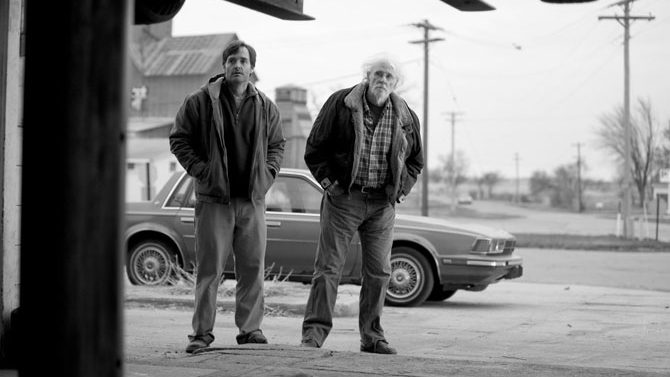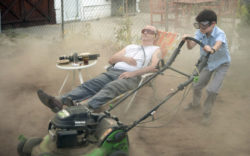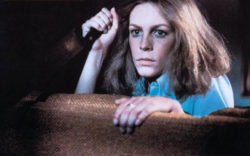Veteran character actor Bruce Dern made a career out of playing twitchy, skeezy, untrustworthy men. He was the slithery varmint who killed John Wayne in Mark Rydell’s underrated 1972 Western The Cowboys. Dern was the actor who murdered countless children’s dreams in that role, taking down the most popular action movie star Hollywood had ever manufactured. Wayne had been wounded before in movies, but no one had ever silenced him forever. Dern accomplished it. For mainstream movie audiences, Dern immediately became a symbol of counter-cultural anarchy against the establishment.
Dern had range, but he excelled at personifying the type of guy you avoided at parties. He was ruin in flesh. Completely identifiable yet scary. Dennis Hopper, Warren Oates and Steve Buscemi all had similar visual qualities: unconventionally attractive, though still drawing our eyes to their screen magnetism. Dern was one of the finest character actors of his generation, and when he stepped into the frame, we watched with eagerness. Dern co-starred in plenty of B-movies—The Wild Angels (1966), The Trip (1967) and Psych-Out (1968)—but his best performances can be seen in the drama The King of Marvin Gardens (1972), opposite Jack Nicholson; the earnest, ecological-minded science fiction tale Silent Running (1972); the terrorist thriller Black Sunday (1977); the anti-war tragedy Coming Home; and the gritty neo-noir After Dark, My Sweet (1990).
In Alexander Payne’s latest, Nebraska, Dern plays the elderly, moody, wispy-haired Woody Grant, a man who receives a piece of junk mail proclaiming that he’s won a fortune. Problem is, unlike the majority of us, Woody believes that he’s hit the jackpot. He insists on leaving his Montana home to journey back to his home state of Nebraska, where he believes his prize is awaiting. Woody’s wife, Kate (June Squibb), thinks he’s crazy, as does his oldest son, Ross (Bob Odenkirk). But Woody, along with his youngest son David (Will Forte), hits the road to eventually get his fortune. Is Woody delusional? Once in Nebraska, with a gaggle of blood kin and assorted hangers-on vying for pieces of Woody’s fortune, the movie shapes into something special, melancholy and quietly entrancing.
Payne, along with screenwriter Bob Nelson and cinematographer Phedon Papamichael, conjures up a haunting yet wry look at the American heartland, a place desolate yet warmly and strangely inviting. Nebraska recalls the sadly neglected 1973 movie Scarecrow, starring Gene Hackman and Al Pacino, while marking out its own cinematic territory. Nebraska is Payne at his best, and also showcases Dern at his finest. This is knowing, yet underplayed, superb American cinema.
Like what you just read? Support Flagpole by making a donation today. Every dollar you give helps fund our ongoing mission to provide Athens with quality, independent journalism.









